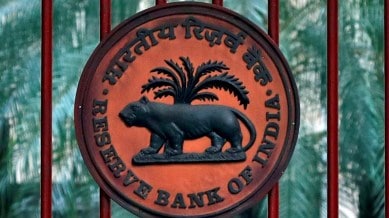Hedge against interest rate risks: Forward trading in govt securities on the cards
Forward contracts will enable long-term investors such as insurance funds to manage their interest rate risk across interest rate cycles. They will also enable efficient pricing of derivatives that use bonds as underlying instruments, the RBI said.

The Reserve Bank of India (RBI) has decided to allow forward contracts in government securities (G-secs) to enable further market development and aid in hedging of interest rate risks by financial institutions.
Forward contracts will enable long-term investors such as insurance funds to manage their interest rate risk across interest rate cycles. They will also enable efficient pricing of derivatives that use bonds as underlying instruments, the RBI said.
monthly limit of free stories.
with an Express account.
Forward trading in government securities involves entering into a contract to buy or sell these securities at a predetermined price on a specified future date. This derivative product allows market participants to hedge against interest rate fluctuations or to speculate on future price movements of G-secs.
Over the past few years, RBI has been expanding the suite of interest rate derivative products available to market participants to manage their interest rate risks. In addition to Interest Rate Swaps, products such as Interest Rate Options, Interest Rate Futures, Interest Rate Swaptions and Forward Rate Agreements are available to market participants.
“We have been receiving feedback about the need to allow forward contracts in Government securities to enable further market development. Such forward contracts will enable long-term investors such as insurance funds to manage their interest rate risk across interest rate cycles,” RBI Governor Sanjay Malhotra said. They will also enable efficient pricing of derivatives that use bonds as underlying instruments, the RBI said.
Draft directions in this regard were issued in December 2023.
As of now, life insurers use forward rate agreements (FRA) and partly paid bonds for the purposes of hedging. Introduction of forward contracts in G-secs will be an enhancement to the set of tools available to life insurers in this regard.
Further, the RBI has also decided to set up a working group with representation from various stakeholders to undertake a comprehensive review of trading and settlement timing of financial markets regulated by the central bank. The group is expected to submit its report by April 30, 2025.
Synchronised and complimentary market and settlement timings across various financial market segments can facilitate benefits of efficient price discovery and optimisation of the liquidity requirements.
Over the last few years, there have been several developments including increased electronification of trading, availability of forex and certain interest rate derivative markets on a 24X5 basis, increased participation of non-residents in domestic financial markets and availability of payment systems on a 24X7 basis.
The RBI has also decided that non-bank brokers registered with markets regulator SEBI can directly access Negotiated Dealing System – Order Matching (NDS-OM), on behalf of their clients. These brokers may access NDS-OM subject to the regulations and conditions laid down by RBI in this regard. NDS-OM is an electronic trading platform for secondary market transactions in G-secs.
Access to NDS-OM is, at present, available to regulated entities and to the clients of banks and standalone primary dealers. These brokers may access NDS-OM subject to the regulations and conditions laid down by RBI in this regard. Necessary instructions are being issued separately.